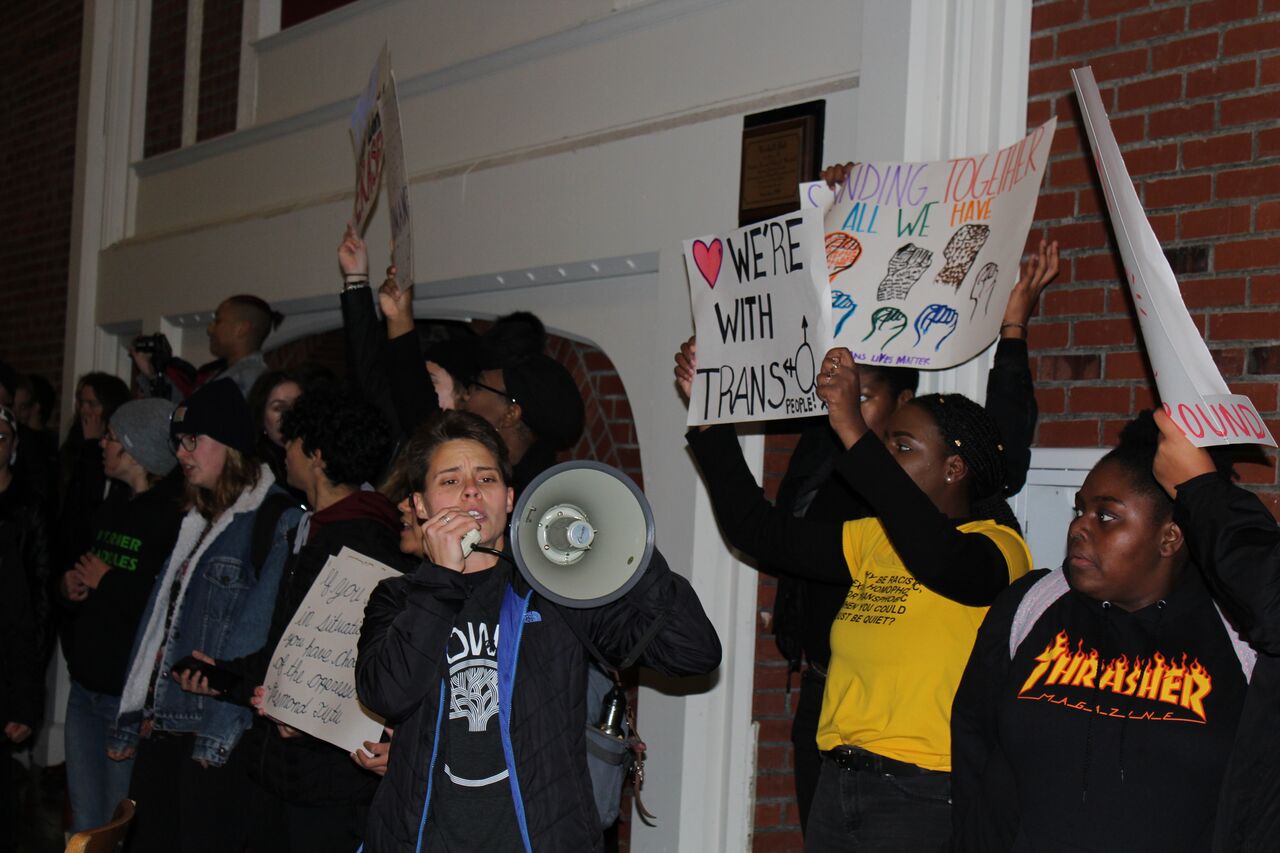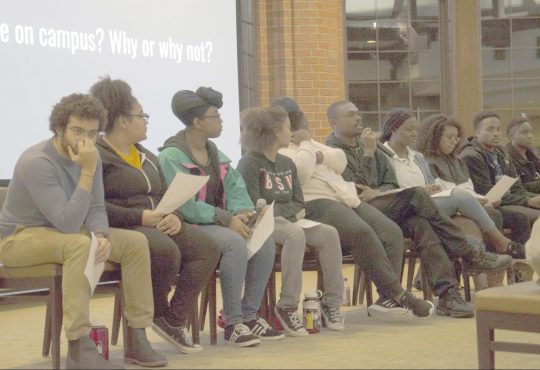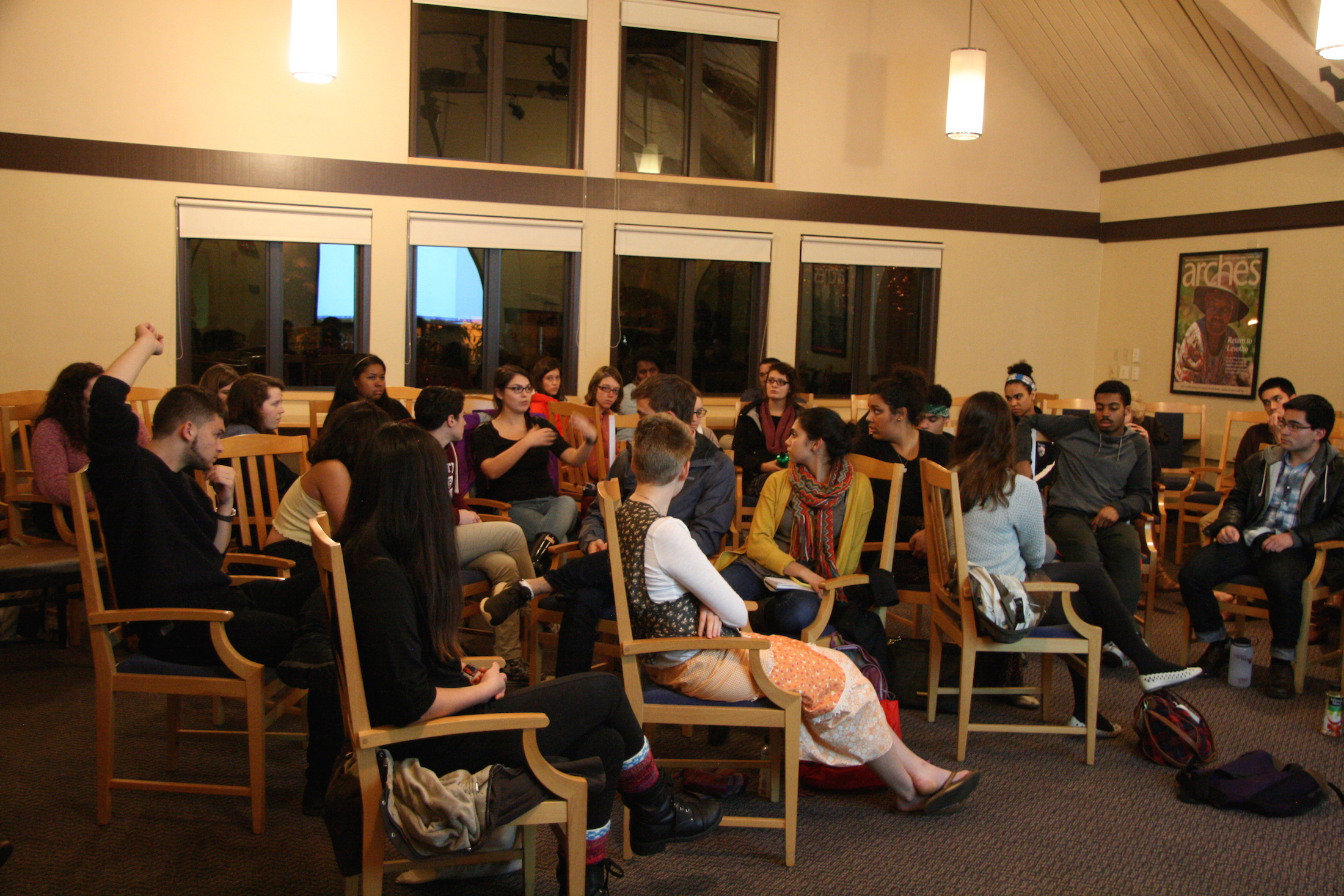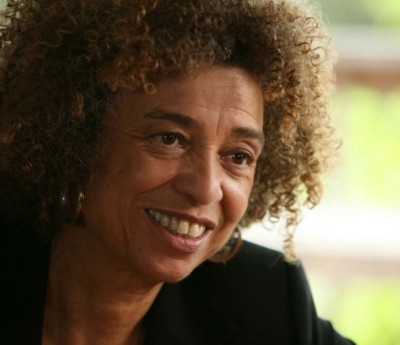
On the day before the midterm elections, the Black Student Union (BSU) led a March for Our Lives around campus. Representation from most multi-identity based groups was present at the march alongside students, faculty and staff.
The march began at the Memorial Fieldhouse at 7 p.m., and most people involved in the march were dressed entirely in black. A huge crowd led by senior Kelly Johnson, the Associated Students of the University of Puget Sound (ASUPS) Senator at Large, and Nia Henderson, the president of BSU, snaked around the outskirts of campus before marching directly up the center path. The whole crowd was chanting and shouting and demanding that their voices be heard by the campus community.
The March happened the week after several notable incidents of identity-based violence in America. The Tree of Life Synagogue shooting in Pittsburgh and several other incidents were on the minds of many marching.
“The amount of people, especially faculty and staff, that showed up to support their peers and this fight for justice was so impactful. Going into this, I had no idea what the turnout would be. Especially considering our campus’ history participating in and responding to student protests, I was concerned that no one would show up. I also am so immensely appreciative to BSU for showing their solidarity in such active and contextual ways,” Johnson said in an interview later.
The march went into the Student Union Building (S.U.B.) and the marchers surrounded the main dining area while Johnson, Henderson and others spoke to the crowd. Johnson spoke first, explaining to the people gathered why this march was important and necessary.
“This is the March for Our Lives, and when I say that I don’t mean anything other than what it sounds like. Our identities and our lives are under attack,” Johnson said, addressing a mixed group of marchers, students, faculty and staff.
Johnson brought up the recent shooting in a synagogue in Pittsburgh, as well as other incidents of identity-targeted violence in the country. Johnson urged the people gathered to vote and use their voices to protect those impacted by violence.
The March was a reminder that the multi-identity based groups on campus, particularly BSU, exist and are present. Their decision to march into the S.U.B. at dinner showed their desire to be noticed and recognized by the rest of the campus community.
“Although I participated and helped lead, BSU was responsible for organizing and creating this event in solidarity,” Johnson said later.
“I think if I were to say anything it would be that student action like this is so important and imperative in creating any contextual change. Engaging in action isn’t always comfortable, convenient or easy but it does make a difference for so many people. Complacency feeds violence,” Johnson concluded.




